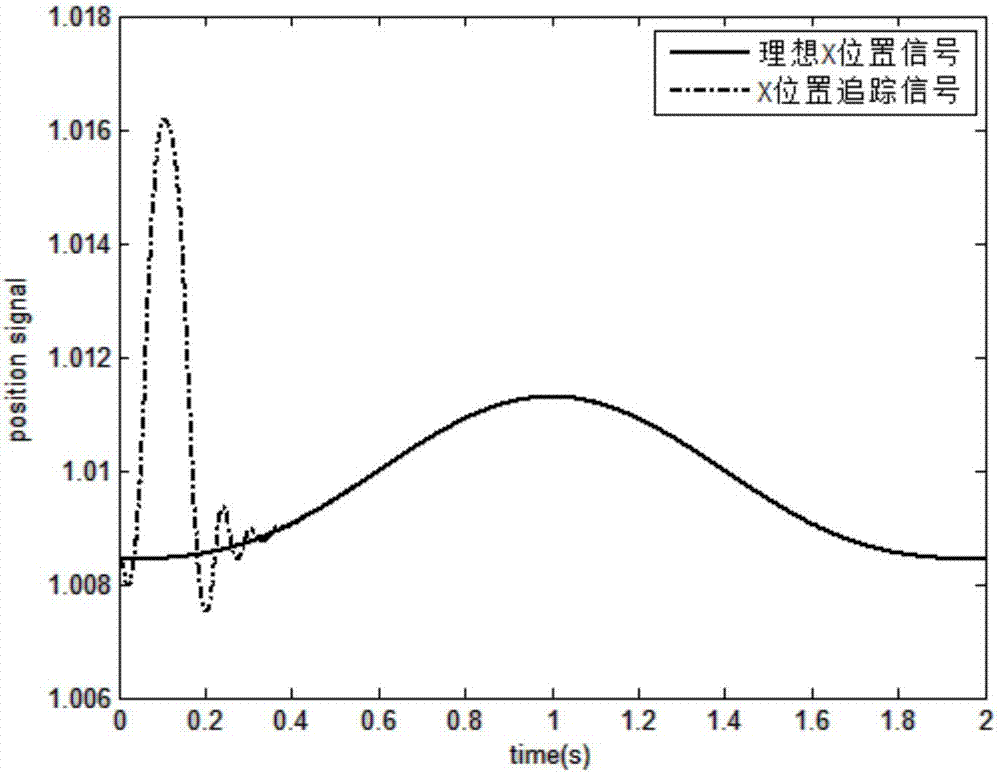Method of orbit transfer control after debris capture method based on auto-disturbance rejection control technology
A technology of active disturbance rejection control and transfer control, which is applied in the direction of adaptive control, general control system, control/regulation system, etc., and can solve problems such as nonlinearity, uncertainty, and difficulty in control
Inactive Publication Date: 2017-09-05
NORTHWESTERN POLYTECHNICAL UNIV
View PDF4 Cites 9 Cited by
- Summary
- Abstract
- Description
- Claims
- Application Information
AI Technical Summary
Problems solved by technology
The difference from spacecraft orbit transfer is that the post-capture combination system not only has the characteristics of nonlinearity, multiple input and multiple output, time-varying, high-order, etc., but also has uncertainties, so it is difficult to apply the traditional " modern control theory" to control it
Method used
the structure of the environmentally friendly knitted fabric provided by the present invention; figure 2 Flow chart of the yarn wrapping machine for environmentally friendly knitted fabrics and storage devices; image 3 Is the parameter map of the yarn covering machine
View moreImage
Smart Image Click on the blue labels to locate them in the text.
Smart ImageViewing Examples
Examples
Experimental program
Comparison scheme
Effect test
example
[0117] In order to prove the feasibility and effectiveness of this method, the following nonlinear multivariable coupling system is assumed:
[0118]
[0119]
[0120]
the structure of the environmentally friendly knitted fabric provided by the present invention; figure 2 Flow chart of the yarn wrapping machine for environmentally friendly knitted fabrics and storage devices; image 3 Is the parameter map of the yarn covering machine
Login to View More PUM
 Login to View More
Login to View More Abstract
The invention proposes a method of orbit transfer control after debris capture based on the auto-disturbance rejection control technology, and belongs to the field of orbit transfer control. The technical scheme comprises a first step of decoupling, according to a motion equation of a post-capture combined system, each channel of the combined system into a single input-single output sub-control system by introducing a "virtual control amount" U; a second step of designing a non-linear dynamic compensation control rate according to each sub system control model; a third step of designing an auto-disturbance rejection controller for each channel, including a tracking differentiator, an extended state observer, and a nonlinear state error feedback control rate; and a fourth step of obtaining, according to the "virtual control amount" of each channel, the required actual control amount. The most prominent advantage of the invention is to overcome the uncertainties of the post-capture combined system model and external disturbance by using the prominent feature of "real-time estimation and compensation of uncertain factors" of the auto-disturbance rejection technology.
Description
technical field [0001] The invention belongs to the field of orbit transfer control, and specifically discloses a method for controlling orbit transfer after debris capture based on active disturbance rejection control technology. Background technique [0002] In recent years, with the enhancement of economic strength and the development of aerospace technology, human exploration activities in space have also increased dramatically. Space debris refers to space objects that are distributed in the earth's orbit and have lost their functions. Space debris has been around since the first artificial satellite was successfully launched into space. However, it took several decades before the threat of space debris to orbiting spacecraft was taken seriously. So far, the US space detection platform has detected about 17,000 orbiting objects, but only 1,200 are normal working satellites or other spacecraft. If it is not controlled, with the continuation of human space activities, ...
Claims
the structure of the environmentally friendly knitted fabric provided by the present invention; figure 2 Flow chart of the yarn wrapping machine for environmentally friendly knitted fabrics and storage devices; image 3 Is the parameter map of the yarn covering machine
Login to View More Application Information
Patent Timeline
 Login to View More
Login to View More IPC IPC(8): G05B13/04G05D1/10
CPCG05B13/04G05D1/10
Inventor 赵丹莉方群
Owner NORTHWESTERN POLYTECHNICAL UNIV
Features
- R&D
- Intellectual Property
- Life Sciences
- Materials
- Tech Scout
Why Patsnap Eureka
- Unparalleled Data Quality
- Higher Quality Content
- 60% Fewer Hallucinations
Social media
Patsnap Eureka Blog
Learn More Browse by: Latest US Patents, China's latest patents, Technical Efficacy Thesaurus, Application Domain, Technology Topic, Popular Technical Reports.
© 2025 PatSnap. All rights reserved.Legal|Privacy policy|Modern Slavery Act Transparency Statement|Sitemap|About US| Contact US: help@patsnap.com



